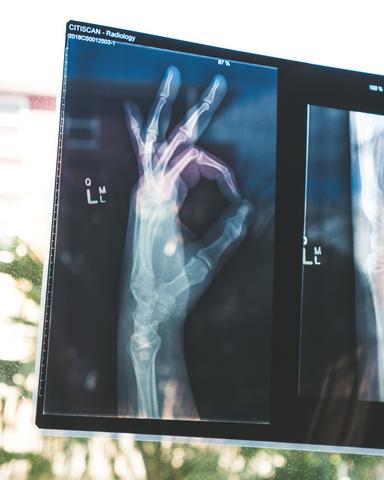For Anyone Who Is Taking This Particular Vitamin…

A number of years ago, I stumbled upon a pretty significant health problem. It sure does seem like I stumble a lot, maybe I should watch where I’m going. 😉
Here’s what happened.
Patients who were taking calcium supplements and following most protocols needed to help strengthen bones were experiencing a major problem.
Their bones weren’t getting any stronger.
I’ve written about this before, but the realization calcium supplements and other prescribed treatment methods didn’t help people grow stronger bones sent me on a quest to find out why.
Long story short, I discovered the reason people’s bones didn’t maintain their strength was because they didn’t get enough vitamin K-2 in their diet.
Vitamin K-2 is a dietary nutrient most Americans are deficient in because our diets aren’t built around K-2 containing foods.
Foods that are high in K-2 are things like organ meats, fermented vegetables, or expensive pasture-raised meats.
Once I realized this, I helped launch a K-2 supplement to help my patients grow stronger bones.
Now – I want to talk to you about another discovery I made regarding bone health.
While K-2 is undeniably linked to strong bones, there’s another missing ingredient to bone health I wanted to talk about today.
Not only is this ingredient essential for growing bones strong…
It’s essential for over 300 other key bodily functions.
And most people aren’t getting enough, which can lead to a host of very serious health conditions.
Why You Need Magnesium For Healthy Bones
When compared to its sister nutrient, calcium, magnesium has been called an “orphan nutrient” because it isn’t as well studied as calcium.
I wish that weren’t true.
As you’re about to see here, magnesium is an essential nutrient for anyone seeking optimal health.
According to a study published by the US National Library of Medicine National Institutes of Health in Nutrition Reviews, anywhere from 56-48% of Americans are deficient in magnesium.
I think those numbers are low and believe magnesium deficiency is closer to 65-80%.
Here’s why I believe my numbers are more accurate:
1 – I think the recommended daily allowance is suboptimal. The standard dose of magnesium is 400-420 mg/day for men and 310-320 mg/day for women. I’m inclined to say we should get 800 mg -1,400 mg a day.
I’m not alone in that thinking either, as Carolyn Dean, MD, ND, and author of The Miracle of Magnesium believes magnesium deficiency hovers around 80%.
2 – I believe most people who supplement are using inferior forms of magnesium. I’ll explain more on that in just a moment.
These deficiencies present some obvious problems.
But when it comes to bone health, a magnesium deficiency may create a potential recipe for disaster.
Here’s why.
Most people think bones are made up only of calcium. While they’re made up primarily of calcium, magnesium is essential for bone health.
From what I’ve seen in the research, anywhere from 50% to 60% of the magnesium in our bodies goes to the bones. Think about that. Half of the magnesium in your body is diverted to bone. That should tell you how important it is.
And as stated, most people aren’t getting enough magnesium in their diet.
Which leads to significantly weaker bones.
We know magnesium is important for bone health because multiple studies have shown us when you add magnesium supplements to a person’s supplement regimen, their bone density increases.
And we’ve known this for some time too, which makes it frustrating that it’s not common knowledge at this point.
In a 1993 study, 32 postmenopausal women supplemented with approximately 250 to 750 mg of magnesium per day for two years. For 3 out of 4 of the women taking the supplements, their bone mineral density went up 1- 8%.
And according to the National Office of Dietary Supplements:
“Magnesium also affects the concentrations of both parathyroid hormone and the active form of vitamin D, which are major regulators of bone homeostasis…
Research has found that women with weak bones have lower serum magnesium levels…these and other findings indicate that magnesium deficiency might be a risk factor for [weak and brittle bones and later fractures].”
And another study, conducted by the Department of Internal Medicine at Yeditepe University Hospital in Turkey, confirmed these same findings.
In their write up, they wrote “[supplementation of ] 290 mg/day elemental magnesium (as magnesium citrate) for 30 days in 20 postmenopausal women with [a known condition linked to higher risk of fracture and weakened bone composition] suppressed bone turnover compared with placebo.”
Meaning magnesium preserved bone strength in study participants who took magnesium, compared to those who didn’t take it.
Answered Is K-2 Enough For Strong Bones?
The answer to the question “is K-2 enough for strong bones” is yes…but only if you’re getting enough magnesium in your diet.
There are 2 ways to know if you’re magnesium deficient.
The most accurate is to take a blood serum test or a urine test. These tests will show you how much magnesium is in your blood/urine and will give your health practitioner a way to approximate your total magnesium levels.
You can also self-diagnose.
Your body has a variety of ways to signal if you’re deficient.
These include:
– Eye twitches
– Nighttime muscle cramps
– Heart palpitations
– Constipation
– Anxiety
– Stiff blood vessels
– Kidney stones
– High blood pressure
– Insomnia
– Irritability
– Sensitivity to loud noises
– ADD
– Angina
– Anal spasms
– Headaches
– Fibromyalgia
– Chronic fatigue
– Asthma
– Diabetes
– Obesity
– Osteoporosis
– PMS
– Menstrual cramps
– Irritable bladder
– Irritable bowel syndrome
– Reflux
– Trouble swallowing
Don’t think that just because you’re experiencing any of these it absolutely means you’re deficient.
But, it won’t hurt to take magnesium anyways. Especially because if you take the amounts I mention in this article it’s almost impossible to overdose on, and if you’re taking anywhere from 800 – 1,400mg I believe you’re getting the right amount.
I barely even scratched the surface on everything magnesium does. But as I mentioned before, it’s vital for over 300 processes in the body, so it’s obvious you need it.
And it’s likely you don’t get enough as it is.
When it comes to supplementing with magnesium, it’s important you select the right kind.
Especially if you want to get all the health benefits from it and not waste your money on a supplement that doesn’t work.
It’s for this reason I recommend Health As It Ought To Be Magnesium Malate.
Our magnesium malate is one of the most readily absorbed forms of magnesium on the planet. So when you take it, you’re truly getting your money’s worth and your body and bones are getting the benefits provided by magnesium.
Here’s the unique thing about this form of magnesium; unlike many other forms of magnesium, malate is chelated. Chelation is the bonding of metal ions (magnesium) with other compounds.
In this case, the malate that bonded to the magnesium is a derivative of malic acid – a natural fruit acid which plays a role in activating and making ATP (the energy units which power your cells).
This combination helps give your body clean cellular energy which will help keep bones strong while also:
— Maintaining normal muscle and nerve function
— Keeping heart rhythm steady
— Supporting a healthy immune system
— Regulating blood sugar levels
— Promoting normal blood pressure
And more.
Similar dosages and strengths to our form of magnesium malate can be found on the internet for much higher prices.
However, we’ve designed this one exclusively for our patients and you can get it for a great price by clicking here or on the image below.
Talk soon,
Dr. Wiggy
www.HealthAsItOughtToBe.com



